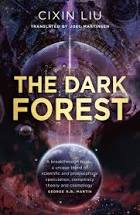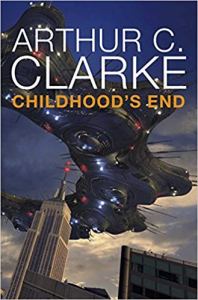
I read this book some time ago, but have delayed writing a review because it’s such a tremendous book I wasn’t sure how to sum it up. This book continues after the first in the series, The Three Body Problem – the Earth is due to be invaded in 400 years by an alien force with vastly superior technology. Given this knowledge, how could the human race best prepare for a battle for survival?
To make things more difficult, the aliens have deployed tiny sentinels to Earth that can observe everything – so like the best crypographic security, and strategies chosen by Earth must succeed even if the opposition knows the strategy in advance. The response of the United Nations is to pick four individuals and give them unlimited powers to devise a strategy and carry it out. There is little oversight – and by keeping the overall plan to themselves, the individuals can achieve some level of subterfuge and misdirection. The main thread of the story follows Luo Ji, who at first seems to use his powers purely for personal gain, achieving a superb lifestyle and making little visible progress on any plan.
The author conveniently gives humans the ability to hibernate for long periods, so that some characters are able to appear at key points during the 400 year ‘crisis’. We experience the devastating first encounter of the human defences against the alien technology and the bravery of some leaders of the space fleets as they question their orders.












 This book is set in the early days of the space race. Scientists have assessed the risk of previously unknown organisms being released on Earth (either alien bacteria brought back to Earth by rockets or Earth-bound organisms changed by exposure to the environment of space). The result is Wildfire – an underground facility with multiple levels of increasing levels of sterilisation, in which the scientists would research any such contaminated material.
This book is set in the early days of the space race. Scientists have assessed the risk of previously unknown organisms being released on Earth (either alien bacteria brought back to Earth by rockets or Earth-bound organisms changed by exposure to the environment of space). The result is Wildfire – an underground facility with multiple levels of increasing levels of sterilisation, in which the scientists would research any such contaminated material.